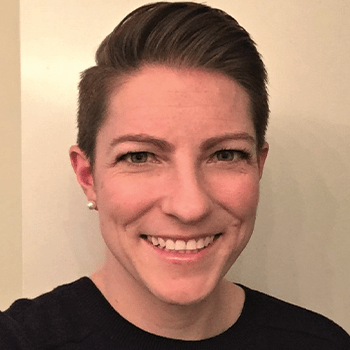Philip R.O. Payne, PhD, FACMI, FAMIA, FAIMBE

Janet and Bernard Becker Professor and Director, Institute for Informatics, Data Science and Biostatistics (I2DB)
Associate Dean for Health Information and Data Science, School of Medicine
Chief Data Scientist, School of Medicine
Dr. Payne is the founding Director of the Institute for Informatics, Data Science and Biostatistics (I2DB) at Washington University in St. Louis, where he also serves as a Professor in the Division of General Medical Sciences. Previously, Dr. Payne was Professor and Chair of the Department of Biomedical Informatics at The Ohio State University. Dr. Payne is an internationally recognized leader in the field of clinical research informatics (CRI) and translational bioinformatics (TBI).
His research portfolio is actively supported by a combination of NCATS, NLM, and NCI grants and contracts, as well a variety of awards from both non-profit and philanthropic organizations. Dr. Payne received his Ph.D. with distinction in Biomedical Informatics from Columbia University, where his research focused on the use of knowledge engineering and human-computer interaction design principles in order to improve the efficiency of multi-site clinical and translational research programs. Prior to pursuing his graduate training, Dr. Payne served in a number of technical and leadership roles at both the UCSD Shiley Eye Center and UCSD Moores Cancer Center.
Dr. Payne’s leadership in clinical research informatics community has been recognized through his appointment to numerous national steering, scientific, editorial, and advisory committees, including efforts associated with the American Medical Informatics Association (AMIA), AcademyHealth, the Association for Computing Machinery (ACM), the National Cancer Institute (NCI), the National Library of Medicine (NLM), and the CTSA consortium, as well as his engagement as a consultant to academic health centers throughout the United States and the Institute of Medicine. Dr. Payne is the author of over 190 publications focusing on the intersection of biomedical informatics and the clinical and translational science domains, including several seminal reports that have served to define a new sub-domain of biomedical informatics theory and practice specifically focusing upon clinical research applications.
Mary F. E. Ebeling, PhD

Professor of Sociology, Drexel University
Author, “Afterlives of Data”
Mary F.E. Ebeling is a Professor of Sociology and an affiliate faculty member in the Center for Science, Technology and Society, in the Culture, Communication and Media (CCM) and Center for Interdisciplinary Study, at Drexel University. Her research examines the intersections of gender, race, and digital technologies, data privacy, health marketing and medical capitalism. She is a visiting researcher at the Institute for Informatics (I2) at Washington University School of Medicine in St. Louis (Missouri, USA). She was a fellow at the Wolf Center for the Humanities at University of Pennsylvania (Philadelphia, USA), the University of Surrey, (U.K.), and the Institute for International Education (Fulbright Fellowship) in Zimbabwe. Her research has been funded by the National Science Foundation, the Advertising Education Foundation, the European Union’s 5th Framework, the Economic and Social Research Council (ESRC, U.K).
Her most recent book Afterlives of Data: Life and Debt Under Capitalist Surveillance (University of California Press 2022) examines data and debt subjectivities in healthcare through the cross-sector uses of clinical and other private health information by data brokers for marketing and other non-health related purposes. Afterlives reveals the industrial and legislative processes that Big Tech and information companies uses to create data commodities.
Mary Ebeling is an ethnographic sociologist who researches the political economies of health data at the intersections of marketing, health, biomedical science and digital life. My latest book Afterlives of Data: Life and Debt under Capitalist Surveillance (2022, University of California Press) will be available in June 2022 and examines how we are subjects of both data and debt. Healthcare and Big Data: Digital Specters and Phantom Objects (2016, Palgrave Macmillan) is focused on data brokers, data mining, marketing surveillance, private health data, and algorithmic identities. Over the last several years, Ebeling has become particularly passionate about “digital ontologies” and how our bodies, and the data they produce, are transformed into digital objects that live “lives of their own” in the databased society.
Adrienne Davis, JD

William M. Van Cleve Professor of Law
Founder & Co-director of the Law & Culture Initiative
Professor of Organizational Behavior and Leadership, Olin Business School, Washington University
Professor Adrienne Davis is renowned for her scholarship and teaching on gender and race relations; theories of justice and reparations; feminist legal theory; and law and popular culture. She has written extensively on the gendered and private law dimensions of American slavery and is the co-editor of the book, Privilege Revealed: How Invisible Preference Undermines America (NYU Press), as well as numerous articles and book chapters.
A Distinguished Lecturer for the Organization of American Historians, Professor Davis directs the Black Sexual Economies Project at the law school’s Center for the Interdisciplinary Study of Work and Social Capital. She also founded and runs the Law & Culture Initiative. Professor Davis is the past recipient of a Bellagio Fellowship from the Rockefeller Foundation and two research grants from the Ford Foundation on such topics as black women and labor, and women, slavery, sexuality, and religion. In addition to her research and teaching, she is past chair of the Law and Humanities Section of the Association of American Law Schools and served on the editorial boards of several prestigious journals. Professor Davis clerked for the Hon. A. Leon Higginbotham, Jr., U.S. Court of Appeals for the Third Circuit.
Amy Heger, PhD

Microsoft User Experience Researcher in Responsible AI, JeffreyM Consulting
Dr. Heger is a Responsible AI User Experience (UX) Researcher with a doctorate from the University of Tennessee in social psychology. Working as a senior consultant at JeffreyM Consulting on Microsoft’s AETHER team (AI Ethics and Effects in Engineering and Research), Dr. Heger is dedicated to empowering AI practitioners to develop and deploy AI systems in more responsible ways. In this role, she drives research and education efforts on AI fairness, transparency, human-AI interaction, and privacy, including user studies to develop a Responsible AI Maturity Model, mitigate overreliance on ChatGPT, revise dataset documentation frameworks, and improve AI privacy reviews.
Prior to her AETHER work, Dr. Heger was a Research Associate at Oak Ridge Associated Universities (ORAU), where she designed and implemented workplace safety culture assessments for nuclear facilities. She continues to publish in peer-reviewed journals with both academic and industry collaborators.
Kaytlin Reedy-Rogier, MSW

Director, Health Equity and Justice
Instructor of Medicine, Washington University School of Medicine
Kaytlin Reedy-Rogier joined the Department of Medicine in the Division of General Medicine as an instructor in January 2023. Kaytlin is a social worker with her MSW from the Brown School at Washington University in St. Louis. She has been engaged in diversity and equity education for 15 years and is very interested in helping students think critically about health and racial equity in medical education.
Her research interests center around how students best learn to grapple with challenging topics and how students internalize what it means to be anti-racist in medicine. Her key interests are health and racial equity in medical education and anti-racism education in medical education.